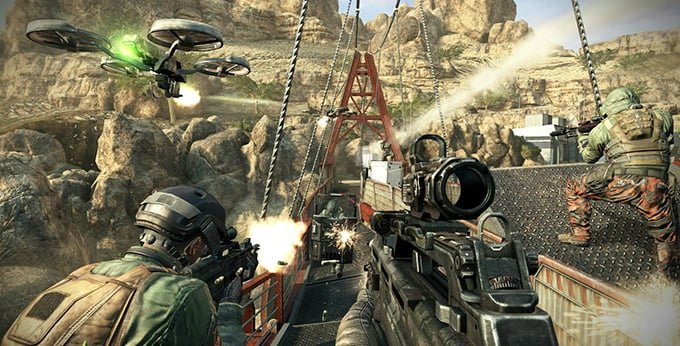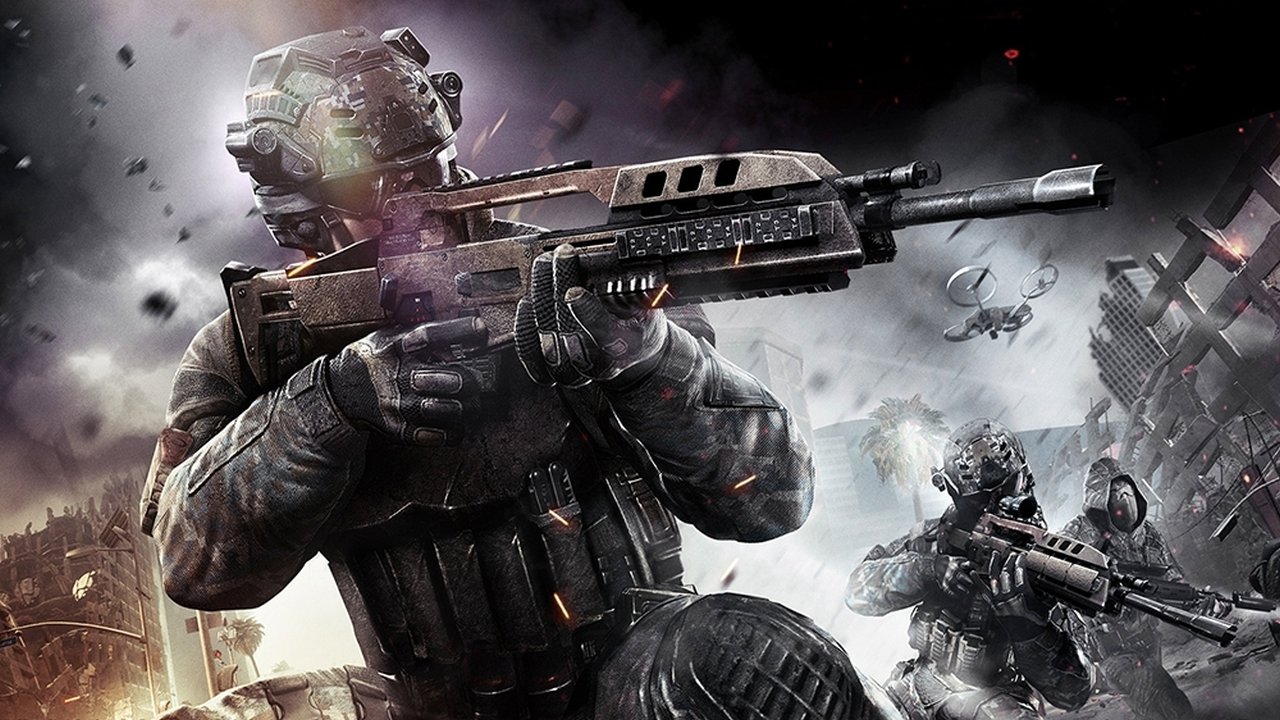Every year I think I’m done with Call of Duty, but, without fail, my resolve ends up falling apart and I find myself picking up the latest entry to the franchise a couple of months after its release. The same thing has, of course, happened in the last few weeks. Despite very little interest leading up to its release I’ve been playing a decent amount of Call of Duty: Black Ops II and have been, contrary to what I would have expected last summer, really enjoying the experience.
After last year’s Modern Warfare 3 — a good game that felt far too much like its predecessors to be very exciting — I figured I was pretty much done with Call of Duty for a few years. The rollercoaster ride of their single-player campaigns, the compulsive upgrade paths of their multiplayer and their additional modes (Spec Ops’ bite-sized couch co-op challenges being my personal favourite) are all a lot of fun, but the annual release schedule of the series had begun to wear on me. Every high point was too reminiscent of the past, the whole enterprise feeling like Call of Duty developers Treyarch and Infinity Ward were merely treading water rather than making any great advances.Black Ops II shows that Call of Duty may very well be a series still worth paying attention to in years to come.
Black Ops II , though, is an ambitious title that makes real changes to the formula and, despite being yet another yearly installment of a long running, relatively homogenous mainstream videogame franchise, is an exciting game.
This is most apparent in the single-player mode with its branching storyline and a plot that recasts the traditionally revered American characters as morally bankrupt defenders of the status quo (how else do you write a game about the near future of the United States while also looking backward at the nation’s military actions under the guidance of the Reagan and H.W. Bush administrations?). Coupled with gameplay innovations like the flawed yet compelling real-time strategy of its Strike Force missions, Black Ops II reinvigorates its solo content, offering the most intellectually satisfying campaign of the series since the first Modern Warfare.
And yes, the multiplayer is a lot of fun, too. The introduction of customizable loadouts that focus on a more egalitarian form of level progression (you unlock better gear while always having to balance powerful and standard items through the limits of a smart “pick 10” system) and a variety of meticulously designed maps makes the online play more enjoyable than it’s been in recent years. Bulking up Treyarch’s Zombies with the introduction of linked levels and betrayal-focused co-op also serves to enhance a fan-favourite mode as well. Both multiplayer and Zombies feel fairly fresh — not entirely new, but still different enough that they serve as a refinement of what came before. This a significant accomplishment in a series that must always cater to die-hard fans who look forward to enjoying more of what they liked in past years even while buying a new entry.

Game critics talk a lot of smack about Call of Duty and it’s easy to see why. Activision, the series’ publisher, is notoriously bent on wringing its most lucrative franchises of every remaining penny via annualized releases, oversaturated (and typically tasteless) marketing efforts and a seemingly gleeful willingness toward axing its stable of less profitable developers. All of this may be true of the company that actually puts out the games, but, just the same, it’s important to give credit where credit is due.
Black Ops II shouldn’t be regarded as just another cash-in or yet another problem with the mainstream videogame industry. Treyarch deserves plenty of respect for the steps they’ve taken toward spurning the evolution of the most popular first-person shooter on the market and giving players an experience that actually lives up to the annual hype. Black Ops II shows that Call of Duty may very well be a series still worth paying attention to in years to come.




